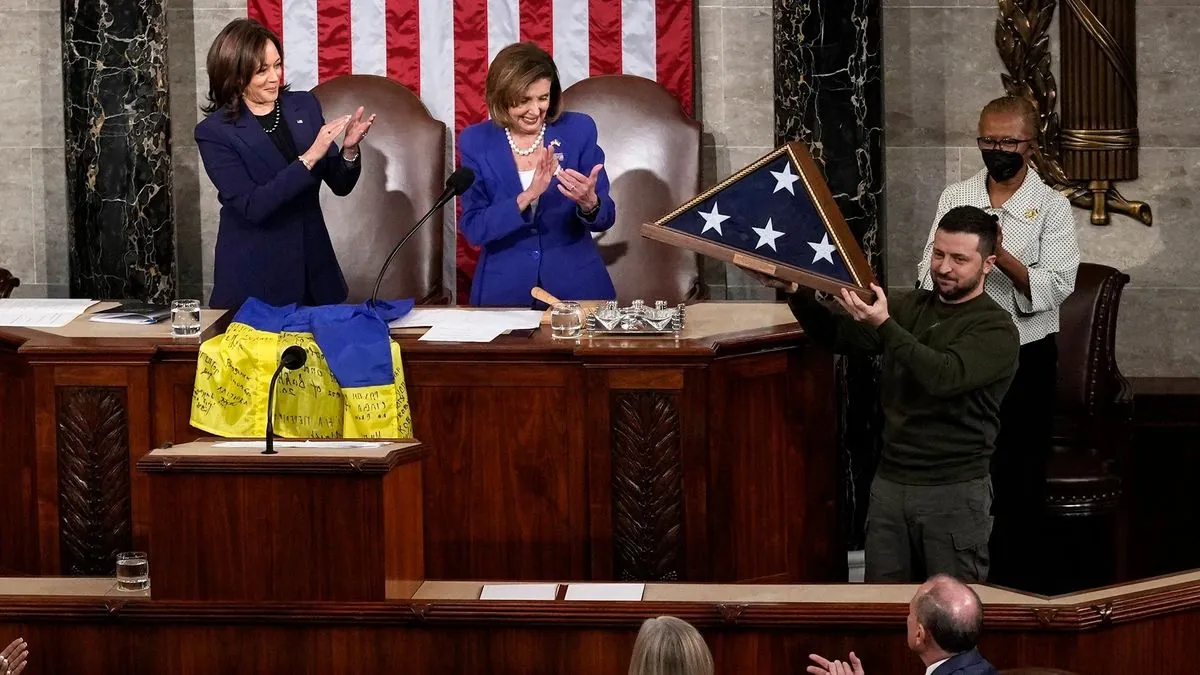Congress Demands Clear Ukraine Strategy as Biden Administration Misses Deadline
The Biden administration's failure to provide a detailed strategy report on Ukraine has sparked frustration in Congress. Lawmakers are calling for a more comprehensive approach to the conflict, with some threatening to suspend aid.

The Biden administration's failure to deliver a comprehensive strategy report on Ukraine has ignited a wave of frustration among lawmakers on Capitol Hill. This development comes as the conflict in Ukraine approaches its third year, with the United States having provided approximately $175 billion in aid since Russia's invasion in February 2022.
The strategy report, mandated by Congress as part of a multibillion-dollar military aid package passed in April 2024, was due in early June. Its absence has led to growing concerns about the administration's long-term vision for the conflict and America's role in it.
Michael McCaul, Chairman of the House Foreign Affairs Committee, expressed his dissatisfaction with the current approach:
"The Biden-Harris administration's 'support' for Ukraine has given the embattled nation just enough to survive but not enough to win. Without a clear strategy for victory in Ukraine, the administration is likely to continue down the same path, prolonging Putin's war of aggression and signaling U.S. weakness to our other adversaries, including communist China."
Critics argue that the lack of a clearly articulated strategy has resulted in a de facto policy of maintaining Ukraine's viability without providing the means for a decisive victory. This sentiment was echoed by retired U.S. Air Force Gen. Philip Breedlove, who served as NATO's supreme allied commander Europe until 2016:
"I think, by default, our real policy is keep them viable, don't let Ukraine get defeated, and wait for one side or the other to give up and go to the table. We need to have a real, demonstrative, declaratory policy."

The absence of a comprehensive strategy has also raised concerns about future funding for Ukraine. Kurt Volker, former U.S. special envoy to Ukraine during the Trump administration, warned that the lack of a clear goal for the billions in aid could lead to more members of Congress opposing future requests.
The debate over aid to Ukraine has caused divisions within the Republican Party. While some lawmakers are pushing for increased support, others, particularly from the isolationist wing, are advocating for a reduction in aid. This split is exemplified by J.D. Vance, Ohio Senator and former running mate of Donald Trump, who has expressed skepticism about continued support for Ukraine.
The situation is further complicated by disagreements between the U.S. and Ukraine regarding military needs and the use of certain weapons. Ukrainian President Volodymyr Zelensky has called for the lifting of restrictions on the use of U.S.-provided weapons on Russian territory, arguing that this would enhance Ukraine's defensive capabilities without requiring physical entry into Russian regions.
As the conflict continues, the need for a clear and cohesive strategy becomes increasingly urgent. The Biden administration's failure to provide this strategy not only frustrates lawmakers but also raises questions about the long-term effectiveness of U.S. support for Ukraine in its struggle against Russian aggression.


































